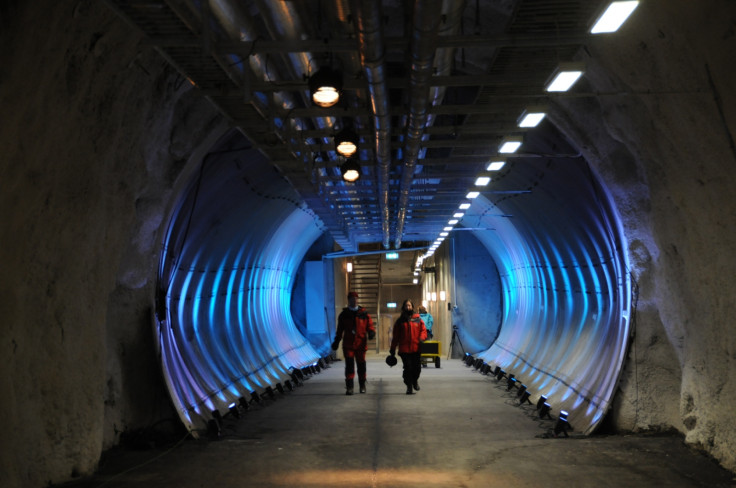The Arctic doomsday vault just got thousands of nearly extinct 'hurricane-resistant' seeds
The doomsday seed vault, buried deep under a mountain in the Arctic, was flooded earlier this year.

The Arctic doomsday seed vault, designed to securely store over 2 billion seeds from natural or man-made calamities has just received a new shipment of thousands of more seed samples. The doomsday vault's new samples include a nearly-extinct and rare "hurricane-resistant' wild bean, which evolved a "vigorous root system that makes it more resilient to tropical storms".
In commemoration of World Food Day, the Svalbard Global Seed Vault received 4,335 new seed samples that came from gene banks in Columbia, Peru and the Nordic region. Included among the new samples were varieties of wheat, beans, potato, barley, millet and the wind-resilient Bermuda bean.
Experts estimate that only 29% of the hurricane-resistant bean now remains in the wild on the island. This led the bean to be added to the International Union for Conservation of Nature (IUCN) Red List of Threatened Species. Fortunately, a team of genetic researchers led by Daniel Debouck, who formerly served as the gene bank manager of the International Centre for Tropical Agriculture (CIAT) were able to successfully replicate the Bermuda bean. Debouck and his team requested 15 seeds and successfully multiplied those to over 6,000.
"This deposit of seeds like the wind-resistant Bermuda bean is one step towards fulfilling this mission. The genebanks we help manage are key to making biodiversity available to farmers and breeders around the world, ensuring our food is plentiful, affordable and nutritious for the future," Marie Haga, Executive Director of the Crop Trust, the organization that runs the doomsday vault, said in a statement.
The rare wind-resistant Bermuda bean will be stored among the hundreds of thousands of seed samples in the vault buried deep in an Arctic mountain on a remote island, halfway between the Norway and the North Pole. The vault currently contains nearly a million seed samples from numerous nations across the globe. The vault is sunk deep in permafrost, ensuring that the seed samples remain naturally frozen and protected against large-scale natural or man-made disasters.
"Sending seeds like the Bermuda bean to the Svalbard Global Seed Vault is like uploading your files to the cloud," said Luis Guillermo Santos Meléndez, Seed Conservation and Viability Lab Coordinator at CIAT. "It gives us peace of mind that even if disaster strikes here, the robust genetic base of beans and tropical forages can be recovered. With this deposit, CIAT now has 92% of its seed accessions backed up at the seed vault."
In May, the doomsday vault experienced a troubling incident, with parts of the facility's entrance having flooded after warm temperatures in winter led to melting of ice. Thankfully none of the seed samples were damaged. However, it is unclear what measures Corp Trust has taken to ensure that the samples are protected from such incidents in the future. IBTimes UK has reached out to Crop Trust for further clarity on the matter and is awaiting a response.






















